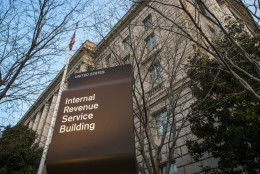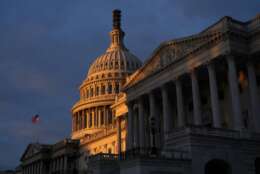Information sharing
-
The IRS and 20 tax industry organizations will share 20 new data sets with each other during the next tax filing season.
October 20, 2015 -
Senate Select Intelligence Committee chairs Richard Burr (R-N.C.) and Dianne Feinstein (D-Calif.) said they expect the Cybersecurity Information Sharing Act will reach the Senate floor for debate in about 10 working days. They're both open to changes to the bill, as long as they don't alter the basic core of the legislation.
October 07, 2015 -
Kshemendra Paul, the program manager of the Information Sharing Environment, said a recently completed effort lets federal, state and local public safety entities search multiple records to ensure they aren’t stepping on somebody’s toes. The concept of event deconfliction across previously disparate databases became a reality because of trust in the ISE-sponsored frameworks.
August 07, 2015 -
The breach of Office of Personnel Management databases that compromised information of more than 22 million people should convince the Senate to pass cybersecurity legislation, Rep. Michael McCaul (R-Texas), the chairman of the House Committee on Homeland Security, said Thursday.
July 23, 2015 -
The Defense Department and General Services Administration have an information sharing problem. They aren't sharing information about space that's available on military installations and about the agencies that could use it. Brian Lepore is director of defense capabilities and management issues at the GAO. He tells In Depth with Francis Rose how the two agencies can improve that collaboration.
June 29, 2015 -
\"A resounding victory for Edward Snowden.\" That\'s how Senate Majority Leader Mitch McConnell described the passage of the USA Freedom Act late yesterday. The legislation, signed by President Barack Obama, will phase out the NSA\'s bulk phone records collection program over the next six months. Instead, phone records will stay at the phone companies and the government will need a warrant to access them. Stewart Baker is a partner at the law firm Steptoe and Johnson. He was the first assistant secretary for policy at Homeland Security and earlier spent two years as the NSA\'s general counsel. He also publishes a podcast on cyber law policy. He joined Tom Temin on the Federal Drive to talk about what\'s next for the NSA.
June 03, 2015 -
President Barack Obama signed an Executive Order giving agencies the ability to recommend economic sanctions against cyber attackers and their supporters. As the President signed this latest order, Congress seems closer than ever to passing a cyber information sharing bill.
April 02, 2015 -
The government has started releasing comprehensive indexes of data showing how agencies operate and conduct oversight. That's in response to a Freedom of Information Act request from the Sunlight Foundation. It's been more than a year in the making, and most of the data has never been publicly identified before. Matt Rumsey, the director of the Advisory Committee on Transparency at the Sunlight Foundation, joined Tom Temin on the Federal Drive with more on just what's in those indexes.
March 20, 2015 -
By CALVIN WOODWARD Associated Press WASHINGTON (AP) — The State Department’s internal watchdog has found that many department employees are not preserving emails for the public record as required by the government. That could mean…
March 12, 2015 -
The agencies that account for 90 percent of Freedom of Information Act requests received by the federal government continue to struggle in processing those requests in a timely manner, according to a new report from the Center for Effective Government.
March 10, 2015 -
A new secure online collaboration tool is up and running at the Defense Department. The open source solution enables access card users to chat, message and conference securely with others around the world. Karl Kurz is the program manager for Defense Collaboration Services at the Defense Information Systems Agency. He joined the Federal Drive with Tom Temin to explain more about the new tool and what came before it.
March 09, 2015 -
The forthcoming Cyber Threat Intelligence Center would not only serve as a centralized hub for cyber intelligence, but also would fuse cyber information with other intelligence sources and serve as a central point for declassifying secret data about cyber threats.
February 25, 2015 -
Information sharing is a two-way street with road hazards in both directions. President Barack Obama held the first White House Cybersecurity Summit last week and issued an Executive Order with hopes of fostering a more open exchange between government and the private sector. Jeff Schilling is the chief security officer for FireHost. He once directed the global Security Operations Center under U.S. Army Cyber Command and has seen the challenges from both sides. On the Federal Drive with Tom Temin, he pointed out cybersecurity was only one of the topics the glitterati actually discussed.
February 19, 2015 -
The White House announced Tuesday the creation of the Cyber Threat Intelligence Center to improve coordination and collaboration of information about computer network security. The Director of National Intelligence will oversee the CTIC, and it will be modeled after the National Counterterrorism Center.
February 11, 2015 -
A call for more transparency in federal spending, the Taxpayers Right To Know Act would create a central database for financial data and performance metrics for every federal program. The bill cleared the House and the Senate Homeland Security and Governmental Affairs Committee last year. But it has yet to have a full vote in the Senate. Hudson Hollister, executive director of the Data Transparency Coalition, joined Tom Temin on the Federal Drive to offer one view on this bill.
February 06, 2015









